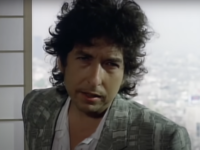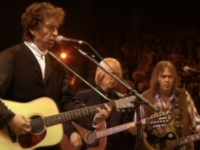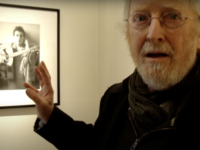“Jokerman” found Bob Dylan using themes both Biblical and secular to tear down political charlatans. Or was it a dark reflection on Judaism? A rumination on false messiahs? A cutting indictment of his own career missteps?
Such are the enduring mysteries of classic Bob Dylan, the consummate singer-songwriting wild card. They also transformed this opening track from Infidels into our earliest indication of a long-hoped-for return to form. The song’s parent album, released on Oct. 27, 1983, went on to reveal itself as a farewell to born-again proselytizing.
“Jokerman” felt like a throwback to the promise of his mid-1970s work, both in manner and tone. At the same time, however, the song (and the album) had a sleek approach that updated Bob Dylan’s sound without dismantling its foundational wit. Credit there goes to producer Mark Knopfler of Dire Straits fame, and an all-star cast that included Mick Taylor, Robbie Shakespeare and Sly Dunbar – the latter of whom give this cut a bouncy island feel.
A video (which Dylan apparently hated) was issued, and Dylan even made a rare appearance on TV, all to little notice. “Jokerman” went nowhere on the charts in 1984, and MTV buried the clip in the overnight rotation because of the song’s length. Or maybe because its apocalyptic ending was something of a downer.
Or was it? Strict interpretation has never been the easiest (or even the most worthwhile) path into Bob Dylan’s genius. And Dylan himself claimed that he spent so much time writing and re-writing this one that it ended up getting away from him.
In the end, there’s a labyrinthine quality to “Jokerman” that makes it endlessly fascinating, whatever becomes of our hero’s quest for meaning in dangerous times.
- ‘Together Through Life’ Remains One of Bob Dylan’s Most Low Key, Organic LPs - April 15, 2024
- Why Joe Jackson’s Retro ‘Body and Soul’ Said So Much About His Future - March 14, 2024
- How Rudolph Stole the Show on ‘The Temptations Christmas Card’ - December 25, 2023




